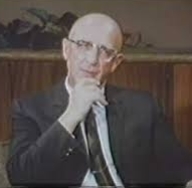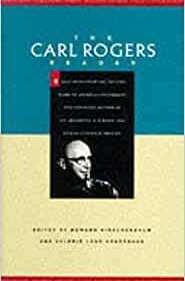Person-Centred Counselling March 25th & 26th 2023
Date: March 25th & 26th 2023
Duration: The Person Centred
Course Fee



This two-day workshop has been designed to introduce the therapist to working within the phenomenological field of the client, to be involved in and led by the client's experience.
Another way to look at this approach might be to say that the therapist is no longer restricted by his or her training or understanding of technique, but taught to trust that the client brings his own skills and resources which might be drawn on and utilised by focusing on the client and not a therapeutic approach; understanding how to encourage the client to apply those unique attributes to their own lives whilst developing at his own pace.
This approach allows us to understand how to be with a client quietly and with confidence.
Famous for his core conditions, empathy, congruence and unconditional regard, Rogers went on to develop these into six conditions for therapeutic change; in fact Rogers posited the theory of change and the working alliance through the core conditions; which is just what previous students felt they had little understanding of, how to develop a working relationship and how to develop that working alliance into one of therapeutic change.
Rogers believed that Empathy, the ability to quickly establish an empathic understanding with your client; Congruence, the ability to be transparently open and genuine with your client without hiding behind a professional persona and Unconditional Regard, caring for your client regardless of their concerns, that the client is unique and in the presence of the therapist, experiences being cared for through acceptance, of his self, habits and behaviour, feeling unjudged; these are preconditions for a Working Alliance and Therapeutic Change.
We believe this workshop will offer you the experience of these theories and support you in developing your practice through these tried and proven ways of being.
Whilst the handout is comprehensive for this day, this approach has meaning when experienced and so the approach is largely experiential. If you are looking to develop your ability to work with people and help them to change, regardless of your discipline, orientation or career; this weekend would be of great benefit to you.
On Becoming A Person
The Father Of Person Centred Therapy, Rogers knew The Relationship With The Client To Be The primary Dynamic For Therapeutic Success.
More impressively, he has written a book that we can learn so much from, 'On Becoming A Person.'
Rogers discusses how we might develop, cultivate our selves to become more of who we are.
Here is a personal take on some Rogerian concepts on becoming authentic.
“Be yourself, everyone else is already taken.” Oscar Wilde


Regard our own experience as the highest authority.
When an activity feels like it's worth doing, it offers a sense of self actualisation. our "total organismic sensing", what we might refer to as intuition.
How we feel can be more accurate than how we think. Over-thinking can be confusing however, our feelings are immediately accurate for us as individuals.
When we are confused, it can be a good idea to consult our feelings and listen to what our whole experience is telling us. Trusting our sensory experience, suggests that our organismic sensing is required to overrule our thinking. Trusting our inner non-intellectual sensing can offer a true self wisdom and a meaningful direction in life. When we listen to this sensing, we can find order in your experience. However much we might look to others for answers, the true answer for us, is within ourselves. The answer though might initially be difficult to experience, as there are often so many layers of cognition and life stories prohibiting entry to feelings, experiencing and listening or more importantly hearing.
Adopting an internal locus of evaluation
As we develop, Rogers argues, we will come to set our own standards to live by, we will determine our own values, we develop the ability to choose our own direction in life. This journey, is how we become our own person. This is different from having the internalised expectations and opinions of others who make decisions for us. This is a contemporary existentialist concept of growth and different from the deterministic behavioural approaches. And so we eventually move to 'am I living in a way that is deeply satisfying and self expressive to me.'
See yourself as a process of becoming, rather than focusing on being fixed.
Often, we consider our issues as, 'if I could just fix this, I will be ok or my life will be fine.' Life is a process, relationships are a process, love is a process, not an end product, we are all work in progress, relationships, love and personal growth, the only end is death, and even that is debatable. This realisation not only allows us personal tolerance, it also fosters empathy, allowing us to regard others as developing into their own organismic self as well. Others faults and flaws are not fixed, they can grow and develop. Others will not change for us but they will eventually change for themselves. You don't have to help others to be as good as you but you can understand that we are all, continuing to grow.
Accept things before attempting to fix them
Acceptance does not mean that we are condoning or that we are not going to change and improve. Acceptance is the first stage of moving forward. If we do not accept where we are we have no starting point. In chapter one Rogers stresses the variance of acceptance. Emotional acceptance, acceptance of others, and acceptance as a tool to eliminate the incessant need to fix things or avoid issues.
Rogers comments: The more I am open to the realities in me and in the other person, the less I find myself wishing to rush in to "fix things".
We can learn much from the issues that we are addressing by acceptance, we learn nothing from our experience by avoidance and fixing.
As a therapist, there is merit in letting go of the need to fix your client, better to create a space in which the client can increasingly be himself, until he accepts the person he is. As therapists we might go on to say, allowing the client to grow into himself with acceptance is the ultimate outcome of therapy, to achieve congruence, to be happy with oneself without denial, avoidance, anxiety or confusion.
Allow life to flow and unfold as it undoubtedly will
Acceptance is the foundation of this approach. When life is richest and most rewarding it is a flowing process, in fact in hypnotherapy we speak of flow states. These would be conscious states of achievement, such as an athlete competing at his best, an artist lost in his work, some might say, feeling as if I am in the zone, these are flow states. Being in the flow does not mean not being productive, on the contrary we can be incredibly productive as time passes without notice. Going with the flow can be an amazing experience as we respond to what feels right as a unique person, moving forward.
Accepting space for ambiguity and ambivalence
In line with the principle of acceptance, we can allow ourselves to experience ambiguity, ambivalence and uncertainty, allowing reality to be more nuanced than the black-and-white polarisation of right and wrong. There is rarely one binary answer and more importantly, there is often no need for an answer at all. Supporting this mindset is a space for us to co-habit with uncertainty and ambiguity, offering at last, peace of mind, contentment and happiness.
Uncertainty and ambiguity will always be with us, developing a constructive relationship with them offers clarity.
Strive to be the authentic you
Despair, according to Rogers, lies in choosing to be someone other than oneself
To be authentic, we are required to cultivate the courage to be imperfect and vulnerable. Authenticity is not about only doing what we want to do, avoiding facing life and its vagrancy's. We required to believe that we are fundamentally worthy of love and acceptance, just as we are. There is no better way to invite grace, gratitude and joy into our lives than to become real, authentic. However, this inevitably means accepting everything that we are, all of our experiences and how they have affected us. As we achieve this we organically develop an internal locus of evaluation, of control although, Rogers rightfully, does not use the word control. Being someone else is the direct opponent of authenticity, it is self-betrayal. The decision to be oneself is our personal responsibility, to know who we are, not what religion, culture, parents want us to be, not to respond to reward, punishment, experience, good or bad, but to be ourselves, despite these experiences and external pressures. Listening to advice from others, we hear others affirm their life choices, in their circumstances using their skills set. This is not about us and only helps us to develop and external locus of verification, and eventually dissempowerment. To know what we want in life, we are required to discover who we are. This leads us into the existential crisis of discovery however, at this point we might look back at Rogers and understand why his approach is known as existential phenomenology.
So, will your therapist give advice and tell you what to do, well you have guessed the answer already but they will help you find who you are, and what better discovery might we wish for.
“Open your eyes to the beauty around you, open your mind to the wonders of life, open your heart to those who love you, and always be true to yourself.” Donna Davis
The Syllabus Includes:
The Third Way - Person Centred Therapy
Understanding the person centered philosophy
The therapeutic relationship
Developing a relationship of change
Six conditions of change
Developing and maintaining the therapeutic alliance
Remaining with the client
The experience of reflection
Helping the client to experience learning frustration
Facilitating change


